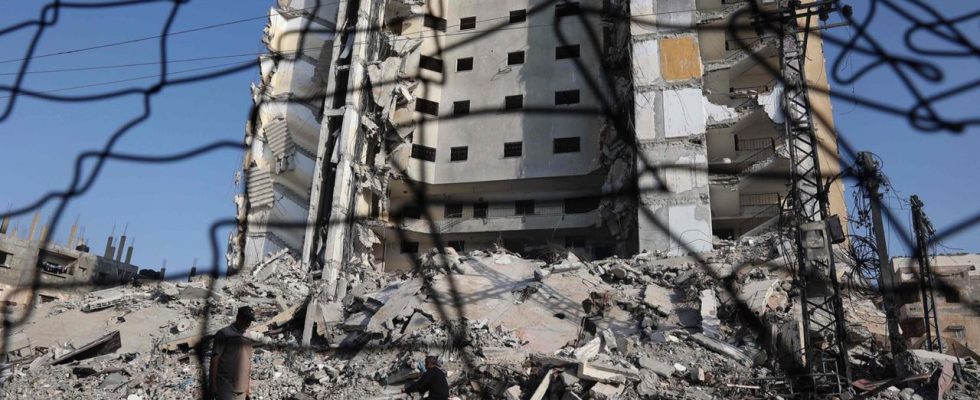Is there movement in the negotiations for a ceasefire in the Middle East? It probably depends on Hamas whether it accepts a new proposal from Israel. Prime Minister Netanyahu is coming under increasing pressure there.
The tension is growing – because the chances of a new ceasefire between Israel and the terrorist organization Hamas appear to be greater than they have been for a long time. According to media reports, there is an Israeli proposal on the table that calls for a ceasefire of 40 days.
In return, around 30 to 40 hostages will be released by Hamas. There is also talk that – as with the first ceasefire in November – Palestinian prisoners will be released from Israeli prisons.
What is now missing is Hamas’ response. Representatives of the terrorist organization left Cairo to examine the Israeli offer. The Israeli delegation that was planning to fly to the Egyptian capital postponed its trip. Israeli media quoted negotiating circles as saying that they wanted to wait for Hamas’ response first.
“Extraordinarily generous” proposal from Israel
It now depends on Hamas, he also said Foreign Minister Annalena Baerbock in an interview with Deutschlandfunk. She is in line with US Secretary of State Anthony Blinken, who is expected to be in Israel tomorrow.
“Hamas has a proposal that is extremely generous,” emphasizes Blinken. “The only thing that stands between the people of Gaza and a ceasefire at the moment is Hamas. It has to decide now, and decide quickly.”
It is unclear what impact a possible ceasefire would have on Israeli domestic politics. Representatives of the right-wing extremist government parties had threatened to leave the coalition if Prime Minister Benjamin Netanyahu temporarily refrained from attacking Rafah in the Gaza Strip as part of a ceasefire. The city in the very south on the Egyptian border is considered the last major Hamas bastion.
The anger among the population is growing
The mood at the demonstrations that mobilized thousands in Tel Aviv on Monday evening was completely different. They are putting pressure on the government to suspend the military offensive in order to bring back the hostages remaining in Gaza – even if there is little hope.
“It’s the least I can do: be here alongside the families of the hostages. Abducted hostages who were abandoned by the government and condemned to die,” says protester Ilana. “Only pressure from world public opinion not to attack Rafah can help them.”
Netanyahu is under increasing pressure
Prime Minister Netanyahu is under immense pressure: from abroad, from his own coalition partners, and from the Israeli public. Quite a few are calling for Netanyahu to finally resign. “I think they all have to go home, they have to be ashamed of what happened on October 7th, they have to be ashamed of how the war was handled,” said protester Uri.
“To know what they are doing to the hostages, they just have to look into the eyes of the hostages’ families and understand that this is the most important thing.” But the Prime Minister is still the one who sets the direction in Israel. Everyone is looking forward to his next decisions with excitement.
Julio Segador, ARD Tel Aviv, tagesschau, April 30, 2024 1:34 p.m

